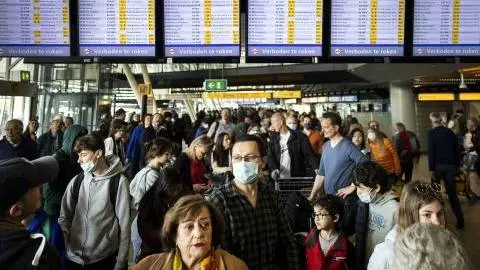3 calls for China as its economic recovery slowly begins
With the Chinese economy starting to recover with the easing of strict Covid-19 measures, the government is looking to boost infrastructure investment to achieve its 5.5% GDP growth target for 2022
The Chinese economy starts to recover
The duration of quarantine in China has been shortened, and the frequency of Covid-19 testing now depends on the risk level assessed for each location. As a result, fixed frequency Covid testing has been replaced by a more flexible arrangement. These new arrangements provide room for retail sales growth during the school holidays. We expect that there will be more cross-city and cross-province leisure trips.
Factories will benefit less than retail sales as 70% of factories were in operation even during the lockdowns as they could operate in closed-loop environments. So, the marginal gain from easing Covid measures for manufacturers should be smaller. Port operations are normalising; they are less congested and freight rates should fall from here. This should reduce delivery times and logistic costs for trade.
Consequently, we do not expect the People's Bank of China to cut policy rates further. The yuan could face appreciation pressure in the short term.
Infrastructure investment is needed if the government wants to achieve its growth target
The government has reiterated that it can achieve the 5.5% GDP target set for this year. This will be challenging even though the economy has started to recover. We believe the government will try to boost infrastructure investment to achieve its target, which will then turn into construction activity and create more jobs. But the government needs to act fast otherwise construction activity will start too late to support economic growth for this year.
Within infrastructure, we should see both traditional infrastructure projects, such as transportation networks, as well as new infrastructure, for instance, completing 5G coverage, and building green energy.
There are also other fiscal stimuli. Some cities have provided subsidies for households to upgrade their cars to electric vehicles and other consumer electronic products. This not only supports consumption but also creates jobs if business sales recover. The main idea of fiscal stimulus is to help sales of the private sector so that it can create more jobs and will then increase consumption, and therefore sales, to form a virtuous cycle.
Future Covid outbreaks cannot be ruled out
The market has been buoyed by the positive news that China has started to recover after the long lockdowns. But the risk of future lockdowns still exists. If China experiences a jump in Covid cases in key cities, like Beijing, Shanghai or Shenzhen, lockdowns would still be likely. And even though lockdowns in the future should be shorter, they would still hurt economic growth. Under such situations, monetary policy could be eased again.
Download
Download article
7 July 2022
ING Monthly: Europe’s recovery is cancelled This bundle contains {bundle_entries}{/bundle_entries} articles"THINK Outside" is a collection of specially commissioned content from third-party sources, such as economic think-tanks and academic institutions, that ING deems reliable and from non-research departments within ING. ING Bank N.V. ("ING") uses these sources to expand the range of opinions you can find on the THINK website. Some of these sources are not the property of or managed by ING, and therefore ING cannot always guarantee the correctness, completeness, actuality and quality of such sources, nor the availability at any given time of the data and information provided, and ING cannot accept any liability in this respect, insofar as this is permissible pursuant to the applicable laws and regulations.
This publication does not necessarily reflect the ING house view. This publication has been prepared solely for information purposes without regard to any particular user's investment objectives, financial situation, or means. The information in the publication is not an investment recommendation and it is not investment, legal or tax advice or an offer or solicitation to purchase or sell any financial instrument. Reasonable care has been taken to ensure that this publication is not untrue or misleading when published, but ING does not represent that it is accurate or complete. ING does not accept any liability for any direct, indirect or consequential loss arising from any use of this publication. Unless otherwise stated, any views, forecasts, or estimates are solely those of the author(s), as of the date of the publication and are subject to change without notice.
The distribution of this publication may be restricted by law or regulation in different jurisdictions and persons into whose possession this publication comes should inform themselves about, and observe, such restrictions.
Copyright and database rights protection exists in this report and it may not be reproduced, distributed or published by any person for any purpose without the prior express consent of ING. All rights are reserved.
ING Bank N.V. is authorised by the Dutch Central Bank and supervised by the European Central Bank (ECB), the Dutch Central Bank (DNB) and the Dutch Authority for the Financial Markets (AFM). ING Bank N.V. is incorporated in the Netherlands (Trade Register no. 33031431 Amsterdam).
